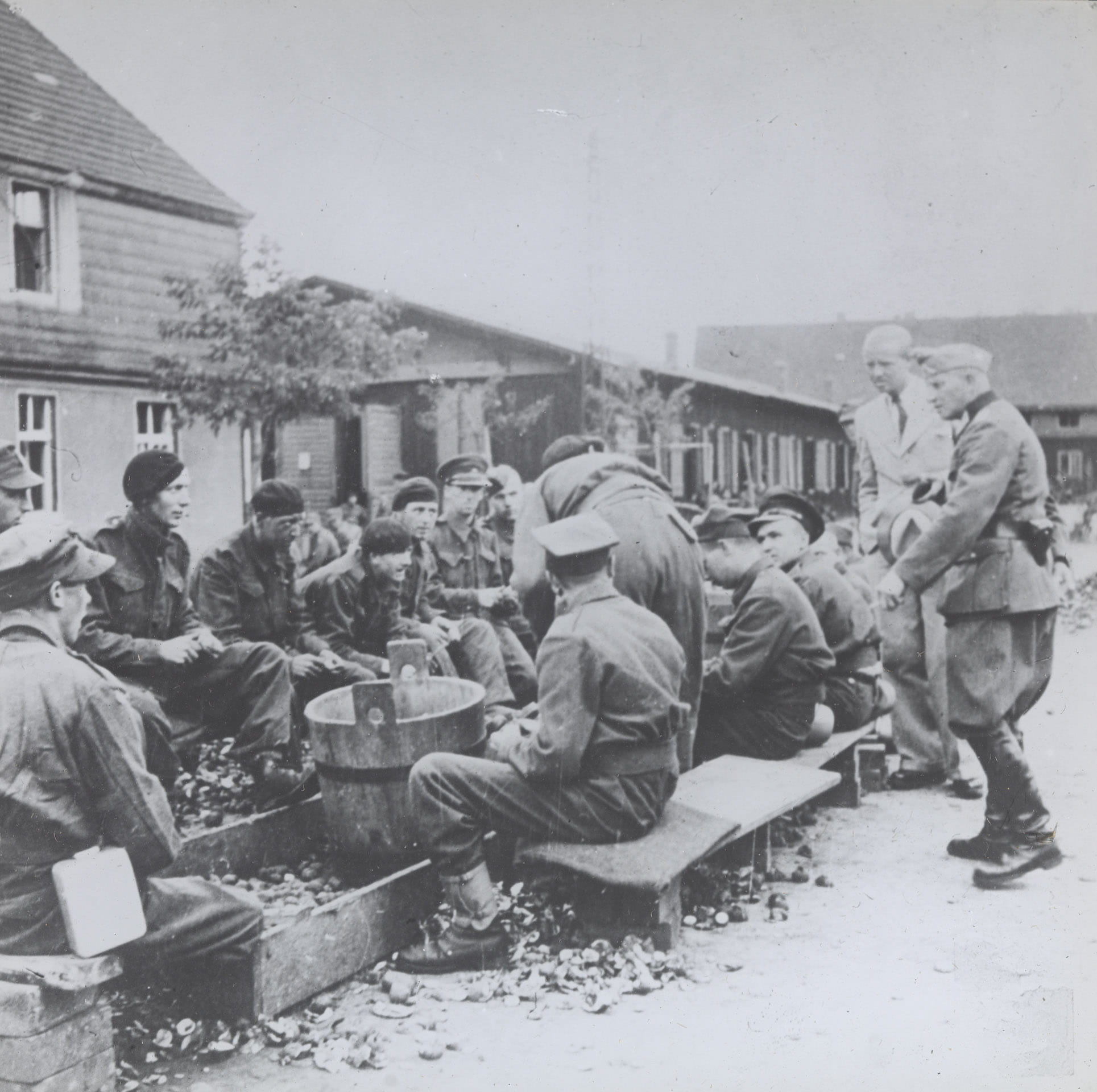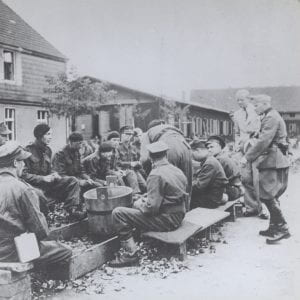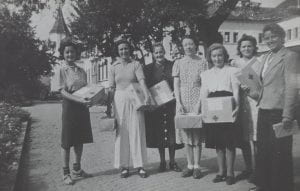
Unexpected journeys through POW records
Dr Seumas Spark
Dean of Arts Research Fellow, Monash University
My first encounter with the Australian Red Cross (ARC) archive was in 2012. The return home of Australian prisoners of war (POWs) during the Second World War interested me, and I wanted to write an article on the subject. From 1942 to 1945, the Allies exchanged prisoners with Germany and Italy. The exchanges were governed by articles in the Geneva Conventions, overseen by the International Committee of the Red Cross (ICRC), and resulted in the return of about 900 Australian POWs before the end of the war. I read hundreds of files at the North Melbourne office of the National Archives of Australia and began to piece together the story of these men. In so doing, I wondered if the ARC held relevant papers. A phone call established that it maintained an archive, and that its collection was open to the public. I made an appointment with the archivist, Moira Drew.
The archive was packed into a small room in the basement of the ARC office in North Melbourne. Moira told me that Melanie Oppenheimer had drawn on the collection in writing the official history of the ARC, and a historian friend told me that the late Hank Nelson, the scholar who drew the attention of Australians to the experiences of POWs, may have visited at some point. Otherwise there seemed to be few people in or beyond the ARC who knew of the archive. This was thrilling. I revelled in the possibility that I could be the first person to learn the secrets held in a tattered old document or to see faces peering out from a faded sepia photograph. Rarely do historians have the chance to delve into an archive that is all but unknown.

Sitting alone in the crowded basement, surrounded by archive boxes and free to sift through precious relics, I thought of Stephen Poliakoff’s wonderful film ‘Shooting the Past’. The film tells of a time when people had the luxury of lingering in archives, unpicking mysteries slowly and carefully: knowledge for knowledge’s sake, rather than research for the next publication.
Over the next few months I spent long days at the ARC archive, researching the POW article and more. There were always tangents to explore and distractions to delight in. I learned of Sir John Nimmo (1909-1997), eminent barrister and judge. Nimmo worked with the Australian and international Red Cross during the Second World War and served the ARC in various capacities in the decades that followed. He believed in practical morality, in doing good rather than speaking of it, and he saw this manifested in the work of the Red Cross. His passion for the organisation and its principles remained undimmed through his long and remarkable life.
Some days my reading drifted to Rockingham, an ARC convalescent home for servicemen who had come home from the war burdened by mental and physical struggles. One reason for my interest in Rockingham was that the site on which it stood is near my mother’s home in the Melbourne suburb of Kew. When curiosity prompted me to go exploring, I found streets packed with swanky houses. While the buildings did not match those I had seen in photos, the street names were a nod to ARC history: Rockingham Street, Rockingham Close, and Newman-Morris Place. Was Newman-Morris Place named for Sir John or Sir Geoffrey? Both father and son were loyal servants of the ARC.
I was disappointed when I heard that the ARC archive was to be moved to a new home at the University of Melbourne. The ARC called the transfer a ‘gift to the nation’, which sounded like a euphemism to disguise cost cutting. Whether or not I was right about this I was wrong to be disappointed: the existence of the archive was not my secret to keep. At the university more researchers have access to the ARC archive, which is a good thing. If an Australian history postgraduate student asked me to suggest a thesis topic, I know where I would send him or her to find inspiration. There can be few archival collections in Australia in which so much remains to be discovered.

The ARC archive has brought me much. I have found rich material for publications, some already written and some to be written. It brought me the pleasure of working with Moira. As with all the best archivists, her approach is to share rather than guard the treasures in her keeping. Moira introduced me to Bill Rudd, friend of the Red Cross and former POW. He is the only POW I have met. We shared tea and biscuits in his home and chatted about the war, truly a memorable experience. And there is another reason I think warmly of the ARC archive. It was through my visits to the ARC that I met my partner, Rhiannon.
The Red Cross Collection is open to all researchers and can be discovered through the UMA website and, once ordered, is accessed in the Reading Room, Baillieu Library, University of Melbourne.
All images are reproduced for study and research purposes only.
Thank you Seumas, for sharing the joy of the Red Cross Archives, I am a volunteer with the Archives and every day that I volunteer there is one of exploration and finding treasures,
Very interesting subject which will interest some members of my family history group. I did not have any family mebers as POWs but I worked with a gentleman named “Mac” Apsey who was captured by the Germans in Greece along with his brother.
We’re glad you found this post engaging. Please feel free to share with your family history group. You may also be interested in our other posts about the Red Cross archive, so make sure you check them out.
Are these records on TROVE? They are certainly of interest to family historians.
Thanks Barbara – the cards will be harvested over the next week so family historians and other researchers can discover them in Trove.
This blog continues to be helpful. will be sending a team to Uni Melb to review soon.
Thank you Steve. Make sure you read our section for researchers before your visit. Details on how to order material is found at https://archives.unimelb.edu.au/information/for_researchers